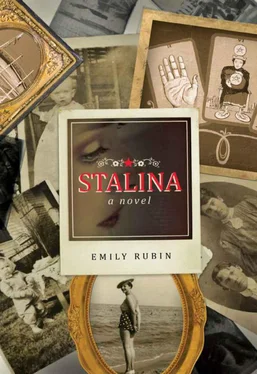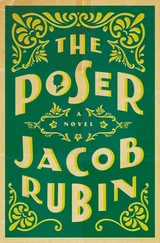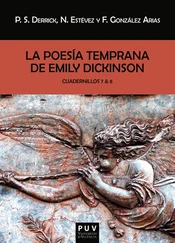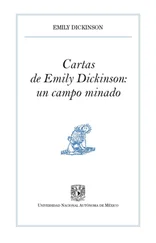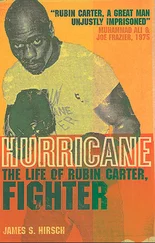“Prrr…prognosis!” came out loud and clear. His breath smelled of sour milk. He startled himself awake, sat up, and stared directly at me.
“You were having a dream?” I said.
“I said something?” he asked.
“You said ‘prognosis,’” I replied.
“Strange—sorry to disturb you.”
“Not a problem.”
“I can’t remember what I was dreaming.”
The wisps of brown hair on his head were going every which way. He held his glasses in his hand and had to squint to see me.
“Are you a doctor?” I asked.
He put his glasses on. The lenses were thick and tinted blue. He was round in his belly and had a young cherub face. He looked much friendlier now that his mouth was closed.
“No. Why? Oh, I said ‘prognosis.’ I remember now—it was a dream about having a terrible illness.”
“I hope that is not the case,” I added.
“No, I’m fine. I watch too many of those hospital shows on television. I like your accent.”
“I’m Russian.”
The bus started moving again. We passed more signs.
Pete’s-A-Place: Hartford’s First Sicilian Pizza
“Pete’s-A-Place, Pete’s-A, piz-za—that’s funny,” I said to my neighbor.
“You have pizza in Russia?” he asked.
“Yes, we enjoy it very much.”
Freddy’s Glass Eye Emporium—Buy and Sell Connecticut
I hope never to need one of those.
Berlin Sneaker Circus
The bus turned onto Windsor Avenue. We passed motel after motel.
Route Five Pay and Stay
Amalia had written me about these places.
Windsor Castle Motel
She was a dispatcher for the Majik Cleaning Agency of Hartford. She mentioned that they often hired maids to clean the rooms, and she would try to get me a job at one of them. At first I thought I would easily get a job in my field of science, but I quickly learned that was not going to happen. I needed to work. I went to several testing labs for hospitals. Amalia suggested they would need someone with my training. But in order to work for these places, I would need certification from a school in America. They are very particular about how samples taken for testing are handled and disposed. All new employees are required to work with the most contagious materials. I was not impressed with the conditions, nor did I have time or money to go to school. And on top of that, the idea of working with dangerous waste was not what I wanted for my life here. I know it is important work, but it felt good to leave at least some of my past behind me. Amalia understood, and soon after my arrival she told me of a cleaning position available at the final motel the bus had passed. Plain, honest work. The Liberty Motel. I liked the name. It was the reason I was here. The bus was just minutes from the Hartford depot. My neighbor had fallen back to sleep and was snoring loudly.
The last lab where I worked in Russia kept me on because of the hazardous materials they were storing. Anthrax and smallpox were their specialty. It was dangerous to work around these things, but as a Jew I was very dependent on the ebb and flow of who was in charge, so in order to keep my job I was willing to work under conditions that many others would refuse. “Your sickle must rest silently,” the head of the lab would say. That was no issue for me.
But in Connecticut, just before the Christmas holiday in 1991, I was very pleased when Amalia organized a job for this Jew at the Liberty Motel a few weeks after I arrived in Hartford, USA. At first, Mr. Suri, the manager and owner, resisted hiring me because he wanted someone younger.
“It’s not because you’re Jewish, he just prefers younger employees,” Amalia assured me.
She told me how the last maid he hired, a woman my age, was caught giving favors to a customer in the laundry room.
“I’m trying to run a legitimate business here. Don’t send me any more of your hard cases,” he told Amalia.
“I have someone perfect, Mr. Suri. She has dignity. We were childhood friends. Her English is excellent. Stalina will be a great asset to your establishment,” she told him. “Trust me.”

Chapter Six: Liberty Motel, Rooms for the Imaginative
One of the first things I noticed about the motel was that Mr. Suri hung postcards of the Statue of Liberty, his favorite tourist site, over the front desk. There was one picture of Miss Liberty in profile that reminded me of my mother. A strong jaw, full lips, and a nose that came straight down from her forehead. On the back of the postcard it explained that the spikes of her crown represent the seven seas and seven continents. I would like to visit her one day. It looks like a lovely spot, and you can walk all the way up inside her. She has a crown like a queen, even though there is no royalty here.
After working there for a few months, I learned the Liberty Motel is also something of an attraction. Known in the business as a “short-stay” establishment, it’s a place for lovers in need of privacy. Prostitutes and politicians, traveling salespeople, truckers, and teenagers living at home all frequent the hotel. Money flows easily through such hands. Sometimes it’s all in single-dollar bills. Sixteen dollars and fifty cents per hour paid up front. I treat everyone the same, underworld and overworld. But it’s not always easy to do. Once a prostitute was so badly beaten that I wanted to call an ambulance, but she refused to go to the hospital. I took care of her, and when I removed the ice pack from her swollen eyes and cleaned her makeup, it was only then I realized she was just a girl, sixteen, seventeen. Times like that bring sorrow to my day. But it’s not always like that, not even often.
Stained carpet, broken side tables, and stale smells from cigarettes and alcohol were the basic decor of the rooms when I first started working here. One day I asked Mr. Suri if he would let me redecorate the rooms. “What’s wrong with them?” he protested. “There is a heart-shaped Jacuzzi in one room that cost me five hundred dollars.”
“Yes, and when people leave that room, they tell me how much they like it,” I patiently explained.
“Stalina, let’s leave it at that.”
“I can make beautiful rooms.”
“No.”
“Sixty dollars per room.”
“No.”
“Think of the motel sign.” I’d thought about the name before presenting the idea. “Liberty Motel, Rooms for the Imaginative.”
“What do you mean, imaginative?” he asked.
“I will make a different fantasy setting for each room for only three hundred and sixty total dollars. Sixty dollars per room.”
“Three hundred and sixty dollars. That’s only twenty-two short-stay hours, less than one day,” he said and smoothed the corners of his mustache.
Mr. Suri was smart and good at math, and I’d noticed that he played with his mustache when he was about to agree to something. About forty years of age or so, he had the long, graceful hands of a pianist, and in profile he reminded me of that handsome actor Omar Sharif. He came here eight years ago from India with his wife, their young son, Chander, who was now ten, and his brother Garson. An uncle died and left them the motel. Mr. Suri’s wife left him for another man about a year after they moved here. I had never seen her. She moved to New Mexico with the child. Amalia told me this much. Mr. Suri had pictures of his son dressed as a cowboy in the office, but none of the boy’s mother. I think he was depressed because sometimes he sat alone under the pine trees in front of the motel drawing with a stick in the dirt. He was quiet and did not laugh very often. Garson I hardly ever saw. Whenever they talked on the phone, I heard much stress in Mr. Suri’s voice. Garson was younger than Mr. Suri and had a daughter who worked here at the motel. Mara was the niece; she was seventeen and very lazy when it came to her job of cleaning the rooms. Mr. Suri thought she was saving money to go to college, but I knew she planned to run off with her boyfriend. I’d heard conversations they had over the intercom in the linen room.
Читать дальше
